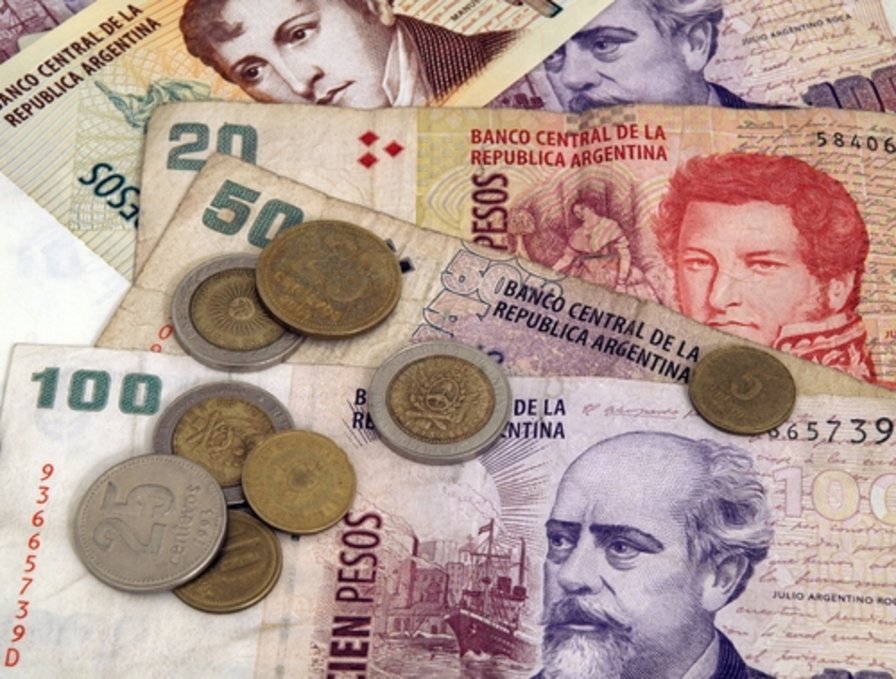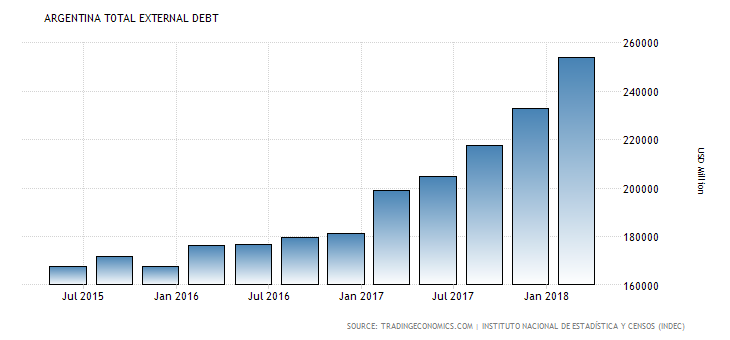Argentina: Pesos depreciate
August 30, 2018 | Expert Insights

IMF revises Argentina bailout terms after a sharp drop in the value of the peso.
Buenos Aires requests an early disbursement of funds as refinancing worries grow.
Background
Argentina is the eight largest country in the world and covers most of the southern portion of South America. Following three centuries of Spanish colonization, it declared independence in 1816.
The Argentine Great Depression (1998 -2002) caused the country’s economy to shrink by 28%. In 2001, President Adolfo Rodriguez Saa declared a default on the state’s foreign debt. Many people in Argentina still blame the IMF for the policies that led to the 2001 financial and economic crisis. The country defaulted on US$80 billion of sovereign debt – the biggest in history and millions of Argentines were plunged into poverty.
In 2013, the country was censured by the IMF over the inflation and economic growth data published by the administration of President Christina Fernandez de Kichner. It was a step that finally led to Argentina’s expulsion from IMF.
Elected in 2015, President Mauricio Macri took steps to liberalize the Argentine economy by lifting capital controls, floating the peso, removing export controls on some commodities, and cutting energy subsidies. In 2017, the Argentinian economy grew at 2.5%, and public debt was approximately 54% of GDP.

Read more about our extensive analysis on Argentina’s debt crisis here.
Analysis
The International Monetary Fund has agreed to revise the terms of its $50bn Argentina bailout package as the peso suffered its biggest tumble in almost three years, sending the currency to a record low.
Christine Lagarde, IMF managing director, said it would “re-examine the phasing of the financial programme” after President Mauricio Macri made a public plea for the fund to speed up the disbursement of the bailout money.
Mr Macri said he had requested “all the resources that should be necessary” to guarantee the country’s 2019 financing programme after the fund disbursed the first tranche of $15bn in June.
The recent turmoil in emerging markets has called into question how Argentina will meet its $82bn financing needs for this year and the next. Argentina is currently navigating a looming recession and stubbornly high inflation ahead of a presidential election in 2019.
The peso has weakened by about 24 per cent against the dollar since the start of the month — and more than 45 per cent this year — once again cementing its position as the biggest loser in the broader Emerging Markets rout triggered by the Turkish lira’s tumble.
The central bank moved quickly to shore up the peso earlier this month, raising its benchmark overnight by increasing its interest rate 5 percentage points to 45 per cent, but it has failed to reign in the currency’s decline.
Argentina’s short-term debt obligations mean that it has about $50bn of peso and dollar-denominated debt coming due by the end of next year. The bulk are peso-denominated Lebacs, or fixed-rate bills issued by the central bank with interest rates as high as 52 per cent. It is also running a fiscal deficit.
Mr Macri said the decision to accelerate the IMF payments was aimed at “eliminating any uncertainty that might have been caused by the worsening of the international context. Guaranteeing financing for 2019 will enable us to strengthen confidence and resume the path of growth as soon as possible.”
The peso fell 7.9 per cent to a record low just below 34 against the dollar on Wednesday, despite renewed central bank intervention.
Assessment
Our assessment is that with Argentina presently facing trouble on several fronts, financial markets seem to have lost their appetite for Argentine risk. We believe that the disquiet over the governments management of the economy grew in December after it pushed the central bank to ease this year’s inflation target from 12% to 15%. We feel that investors may have panicked at the country’s wide fiscal and current account deficits, its 25% inflation, and its rapidly expanding pile of foreign debt.








Comments